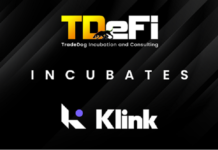


Blockchain ETF’s are in the trend in the United States. Taking a leaf out of the book of the United States, the Canadian regulators also approved their 1st blockchain-based exchange-traded fund. The ticker symbol of the fund would be HBLK and it would be listed on the Toronto stock exchange.
CANADA has approved its first blockchain exchange-traded fund (ETF) which is set to launch on the Toronto Stock Exchange next week as the price of bitcoin continues to tumble.
Financial background of the company:
The company which is launching the blockchain-based ETF already has best blockchain technologies. This index is specifically designed to track the companies which are associated with the blockchain index. These companies can include large cap as well as small-cap companies. The corporation harvest portfolio is launching these ETFs in order to tap into the blockchain market.
In US as well as in other countries, companies are lining up to launch the blockchain-based ETF’s. The reason for this is that any company which is related to blockchain technology or cryptocurrency sees a certain increase in their values almost overnight. The returns are astronomical for these companies. Thus, many of the companies in the financial sector are trying to tap into this new found popularity of such companies. They would be able to diversify the risk by investing in multiple such companies rather than investing in a single company. This would provide investors with the risk diversification as well. Moreover, as the funds are exchange-traded funds, the investors would be able to liquidate them quite easily as well.
There are also a couple of other funds which are in the pipeline which are based on blockchain technology. The names of these funds include First trust portfolios Canada and evolve funds group Inc.
Currently, the retail clients as well are very much interested in investing in Bitcoin-based funds which are related to blockchain-based investment. This is one of the main reasons why more and more companies are actually concentrating on such funds. With the diversification of these funds, the risk is reduced to a large extent which is not the case with individual cryptocurrencies. Moreover, many of these companies are in the nascent stages. Due to diversified investments, the ETFs are able to capture the upside in these companies. This results in astronomical returns for the investors as well.
The United States has approved a couple of such funds but they have already sent a notice to these funds to explain why they should be allowed to trade. Therefore, the future of the blockchain-based ETFs is under threat in the United States.
In Canada, there is no such problem as the authorities have recently approved the funds as well which makes it easier for the investors to invest in the blockchain-based companies.
–
Canada trialing use of Ethereum blockchain to enhance transparency in govt funding
The Canadian government has launched a trial to explore the use of blockchain technology in making government research grant and funding information more transparent to the public.
For the trial, the National Research Council (NRC) is using the Catena Blockchain Suite, a Canadian-made product built on the Ethereum blockchain, to publish funding and grant information in real time.
When the NRC creates or amends a grant, the pertinent information is stored on the Ethereum blockchain, and posted on an online database that Canadians can peruse.
“Blockchains provide the ultimate in transparency and trust, making this technology a brave new world for organizations that strive to conduct transparent business,” the NRC said in a blog post.
“These are early days yet, but the experiment is expected to provide constructive insight into the potential for blockchain technology and how it may be used for more open and transparent function of public programs.”
What is the Ethereum blockchain?
As the NRC website explains, “On the simplest level, blockchains are public ledgers that record transactions shared among many users. Once data is entered on a blockchain, it is secure and unalterable, and provides a permanent record.”
The high level of security comes from storage of data in encrypted blocks that are decentralized, or stored on a network of computers around the world. This combination of encryption and decentralization ensures that data is practically impenetrable.
The most well-known manifestation of blockchain technology is Bitcoin, a digital currency that stores all transactions and amounts on a decentralized public ledger. But while Bitcoin’s meteoric rise has garnered it much hype, its utility pales in comparison to Ethereum.
–
Canada’s Blockchain Trial Adds Transparency to Government Funding
Countries all over the world are experimenting with blockchain technology. Now, Canada has announced that it will trial the use of blockchain to add transparency to government funding and research grants.
DECENTRALIZED FUNDING
According to futurism.com, The Canadian government is testing out the use of blockchain tech to improve transparency in government funding.
Specifically, Canada’s National Research Council (NRC) is sharing information about funding and research grants for its Industrial Research Assistance Program (NRC IRAP) in real time via the Catena Blockchain Suite, which is built on the Ethereum blockchain.
For Canada’s blockchain trial, every time the NRC creates or alters a grant, that information is added to the blockchain, which will be connected to a publicly accessible online database.
Besides elevating transparency between the government, research organizations, and the public, Canada’s blockchain trial also increases security. Data on a blockchain is stored in encrypted blocks that are managed by a decentralized global computer network. Essentially, this setup renders the data unalterable.
The NRC likely chose the Ethereum blockchain for several reasons. It is one of the most established blockchain technologies in existence right now, and unlike the blockchain supporting the bitcoin cryptocurrency, the Ethereum blockchain can run smart contracts, which gives it far more utility.
TRIALING BLOCKCHAIN
Canada’s blockchain trial isn’t wholly unique — a number of other nations are looking for ways to integrate blockchain technology into their operations.
Australia is expected to begin using blockchain to clear and settle trades on its stock exchange in March, at which point it will become the first nation to have a blockchain-based stock exchange. Meanwhile, Estonia is exploring ways to use blockchain to support its e-residency program and is even considering the possibility of creating its own cryptocurrency.
By using blockchain to add transparency to its funding efforts, Canada can both establish trust with the public and potentially get citizens more involved in the process. For example, a person may notice a certain area of research is being neglected and be inspired to reach out to their representatives about the issue.
With a blockchain, the viewer will know that what they are seeing is accurate, and given the amount of misinformation available on the internet, that alone is a major benefit of the initiative.
Adam Webb is editor in Smartereum, blockchain and currency news, where he produces updates on Blockchain, Ethereum and other alternative cryptocurrencies.









